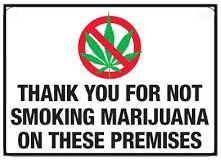By: Lisanne L. Mikula, Esquire
On April 17, 2016, Pennsylvania became the 25th state to legalize medical marijuana. The law requires that all qualified patients with a physician’s recommendation register with the Pennsylvania Department of Health.
Upon registration, the patient will be issued a medical marijuana identification card that can be used to purchase medical marijuana from a qualified, state-licensed medical marijuana dispensary. Full implementation of the law-including the issuance of interpretative regulations-will take up to eighteen to twenty-four months, but employers are already asking how this new law will affect their drug-free workplace policies.
It is undisputed that employers benefit from a drug-free workplace. Maintaining sound policies and procedures to achieve a drug-free work place helps to ensure a safe and productive work environment. Does legalized medical marijuana mean the end of these drug-free workplace policies in Pennsylvania?
The law bans discrimination and retaliation against any employee or prospective employee on the basis of the person’s status as an individual who is certified to use medical marijuana. However, the law specifically does not require that an employer make an accommodation for the use of medical marijuana on an employer’s premises or property. There is also no requirement that health insurance, including employer-provided health insurance, cover the cost of medical marijuana.
The law specifically provides that it does not require employers or employees to violate any federal laws which may impose a stricter drug-free standard, such as, for example, federal contractors who are subject to the Drug Free Workplace Act or companies operating under the Department of Transportation’s detailed drug testing criteria.
The text of the newly-passed legislation does not limit an employer’s ability to discipline an employee for being under the influence of medical marijuana in the workplace or for working while under the influence of medical marijuana when the employee’s conduct falls below the standard of care for the position. This is not as clear a directive as it may appear. For example, what happens when a random or routine drug test indicates the presence of marijuana in the system of an employee who is certified to use medical marijuana where the amount is insufficient to constitute impairment and where the employee’s conduct and performance are satisfactory? May employers test users of medical marijuana more often than other employees? These and other questions are sure to arise once the law takes full effect.
Of course, assuming the employer is not subject to federal laws imposing more stringent drug-free standards, employers may choose whether to make an exception to their drug-free workplace policy for medical marijuana use. But, if that is an exception that an employer decides to make, it must be an exception that is applied after a thoughtful consideration of all the safety and business risks involved and done in a manner in which the employer does not unnecessarily expose itself to potential claims for discrimination-particularly if the exception is granted to some but not all employees.
To be prudent, employers should consult with legal counsel in order to fully evaluate-and to the extent necessary, update-their drug-free workplace policies and procedures to ensure compliance with any applicable regulations, minimize the risk for potential discrimination claims, and avoid potential penalties by the Federal Government.
The attorneys at the law firm of DiOrio & Sereni, LLP are experienced and available to help you. Contact Lisanne L. Mikula, Esquire at 610-565-5700 or send her an email at [email protected].
Like what you see? Join our mailing list











